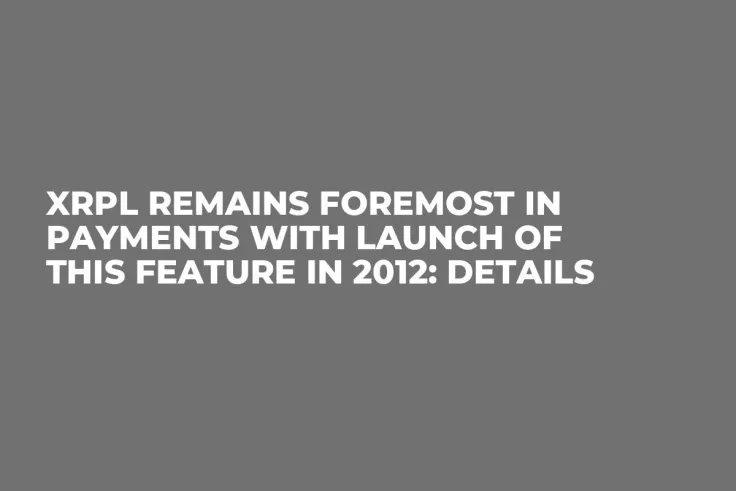
Disclaimer: The opinions expressed by our writers are their own and do not represent the views of U.Today. The financial and market information provided on U.Today is intended for informational purposes only. U.Today is not liable for any financial losses incurred while trading cryptocurrencies. Conduct your own research by contacting financial experts before making any investment decisions. We believe that all content is accurate as of the date of publication, but certain offers mentioned may no longer be available.
According to Ripple CTO David Schwartz, XRP Ledger, or XRPL for short, boasts of unique advancements in payment technology dating back to 2012, before several cryptocurrencies even existed.
XRP Ledger uses a consensus protocol unlike any digital asset that came before it. Payment processing is one of the primary functions of XRP Ledger.
XRPL has had a CLOB with cross-currency and cross-asset payments that use multiple paths for liquidity since 2012.https://t.co/J100cxBAA8?from=article-links https://t.co/4i7HRL4ICI?from=article-links pic.twitter.com/exDGxbCVT5
— David "JoelKatz" Schwartz (@JoelKatz) January 1, 2023
At this point, it bears mentioning that Ripple is a company building payments infrastructure, crypto solutions and software for businesses and institutions.
XRP is the native cryptocurrency of XRP Ledger (XRPL), an open-source, decentralized blockchain technology.
With the evidence of a GitHub document, Schwartz says XRPL has had a CLOB with cross-currency and cross-asset payments that use multiple paths for liquidity since 2012. A central limit order book (CLOB) is a type of decentralized exchange that does use an order book. It matches all bids and offers according to price and time priority.
Cross-currency payments that exchange tokens, XRP, or both are enabled on XRPL and are fully atomic, meaning that either the payment fully executes or no part of it does.
According to Schwartz, Ripple, the company, has not changed its strategy since it adopted the RippleNet strategy in about 2014. Ripple describes itself fundamentally as a payments company, though its resources have somewhat increased.
In the ongoing Ripple lawsuit, CryptoLaw founder John Deaton opines that both a decision and a settlement might be possible in the case.
According to a poll conducted by Deaton, 59% of respondents believed that the case would be settled. The CryptoLaw founder sees a scenario whereby the judge renders a decision and then Ripple and the SEC agree to settle with or without appeals.


 Dan Burgin
Dan Burgin Vladislav Sopov
Vladislav Sopov